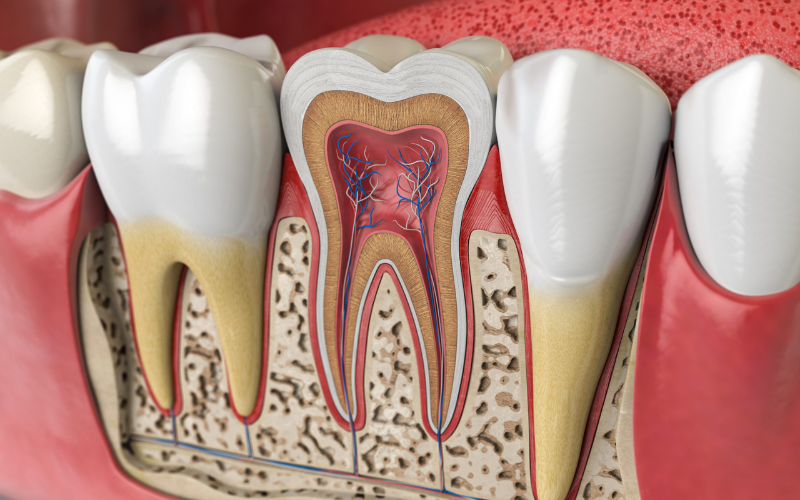
By Inspired Smiles Dental
You’ve just had a non-surgical root canal, and while the hard part is over, your recovery has just begun! The good news? With the right aftercare, you can heal quickly, minimize discomfort, and protect your tooth for years.
A little swelling and sensitivity are normal, but knowing what to do (and what to avoid) can make all the difference. Whether you’re wondering about pain relief, what to eat, or how to prevent complications, we’ve got you covered in today’s blog.
Let’s dive into 10 essential tips to ensure a smooth and successful recovery!
Why Proper Healing Is Important?
Many people assume that once the procedure is over, the work is done. However, taking care of your tooth post-treatment is just as important as the procedure itself. Proper healing helps to:
- Reduce pain and discomfort.
- Prevent infection and complications.
- Ensure long-term success of the root canal.
- Strengthen and protect the treated tooth.
1. Follow Dentist’s Instructions
First, a dentist will provide personalized aftercare guidelines. Follow them carefully, including medication instructions, dietary restrictions, and cleaning techniques. Ignoring these recommendations can slow down healing and lead to complications.
2. Manage Pain With The Right Medications
Some discomfort is normal after a non-surgical root canal. Manage it effectively by:
- Taking prescribed pain relievers as directed.
- Using over-the-counter medications like ibuprofen for mild discomfort.
- Ignore aspirin if dentist advises against it.
3. Reduce Swelling with Ice Packs
Swelling is common after a root canal, especially in the first 24 hours. To minimize it:
- Apply an ice pack to your cheek in 15-minute intervals.
- Avoid placing direct heat on the area.
- Sleep with your head slightly elevated to reduce swelling.
4. Avoid Chewing on The Treated Side
Your tooth may be sensitive after the procedure, and chewing on that side can cause discomfort or damage. Instead:
- Stick to soft foods for the first few days.
- Chew on the opposite side until a dentist gives the all-clear.
- Avoid hard, crunchy, or sticky foods.
5. Maintain Proper Oral Hygiene
Keeping your mouth clean is essential, but you need to be gentle around the treated tooth. Follow these oral hygiene tips:
- Brush gently with a soft-bristled toothbrush.
- Avoid aggressive flossing near the treated tooth.
- Rinse with warm salt water to keep the area clean and reduce irritation.
6. Stay Hydrated and Eat Nutrient-Rich Foods
Your body heals better when you stay hydrated and eat well. Choose:
- Soft, nutritious foods like mashed potatoes, yogurt, and soup.
- Plenty of water to stay hydrated and flush out bacteria.
- Avoid alcohol and sugary drinks that can slow healing.
7. Don’t Skip Your Follow-Up Appointments
The dentist will want to check on your progress and may place a permanent restoration (like a crown) on the tooth. Skipping follow-ups can lead to untreated complications.
8. Be Mindful of Persistent Pain or Swelling
Mild discomfort is normal, but if you experience severe pain, swelling, or fever, it could indicate an infection. Contact our dentist immediately if you notice:
- Increasing pain after the first few days.
- Swelling that gets worse instead of improving.
- A bad taste or pus around the treated area.
9. Avoid Smoking & Alcohol
Smoking and alcohol can slow the healing process and increase the risk of infection. If possible, avoid them for at least a week after your root canal to allow your body to recover properly.
10. Be Patient—Healing Takes Time
Most people feel better within a few days, but complete healing may take a couple of weeks. Be patient with the process, and don’t rush into eating hard foods or skipping aftercare.
Healing after a non-surgical root canal doesn’t have to be difficult. By following these 10 essential tips, you can ensure your tooth stays strong for years. Would you like personalized advice on your root canal recovery? Make an appointment with our dentist today!

